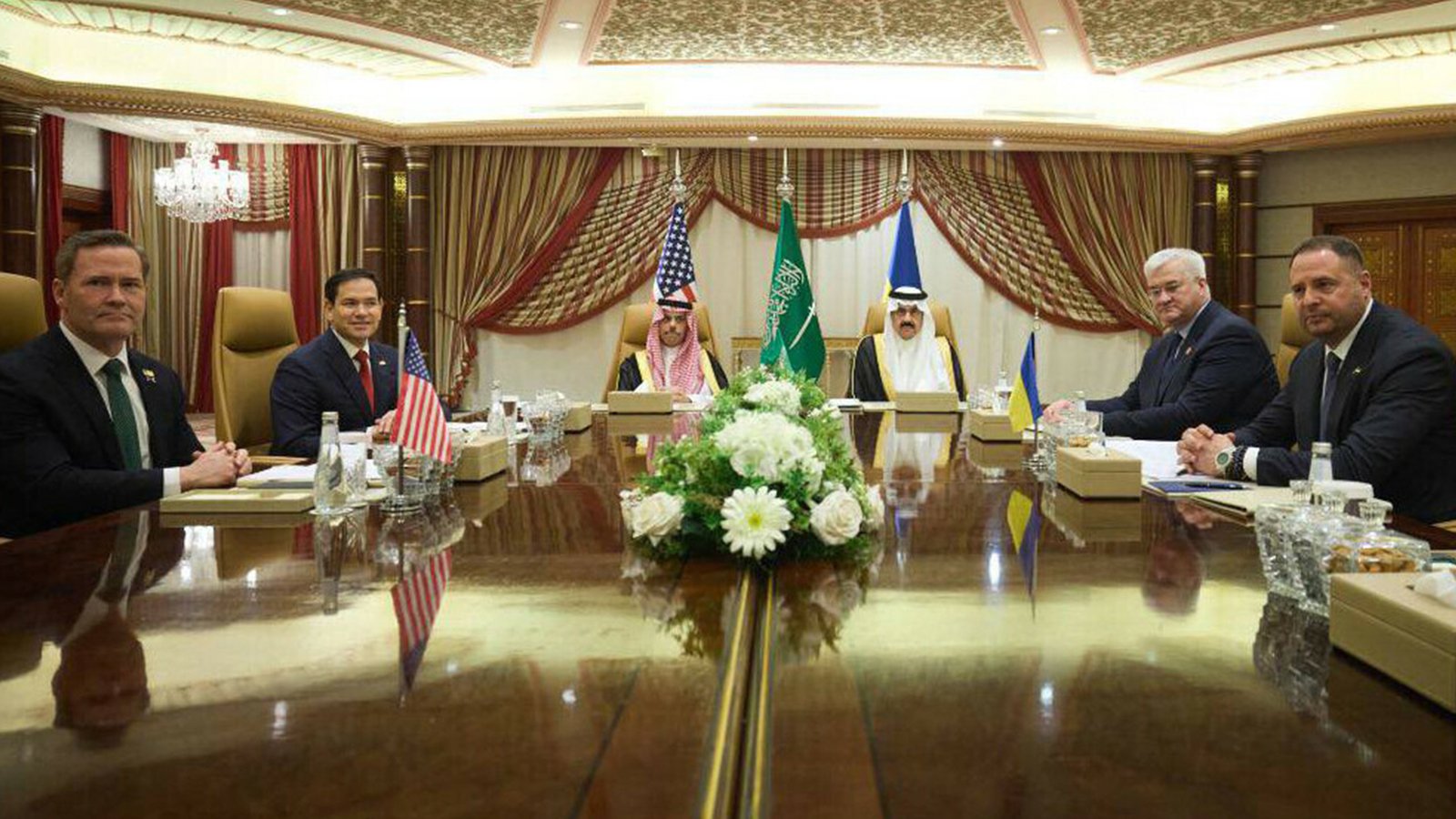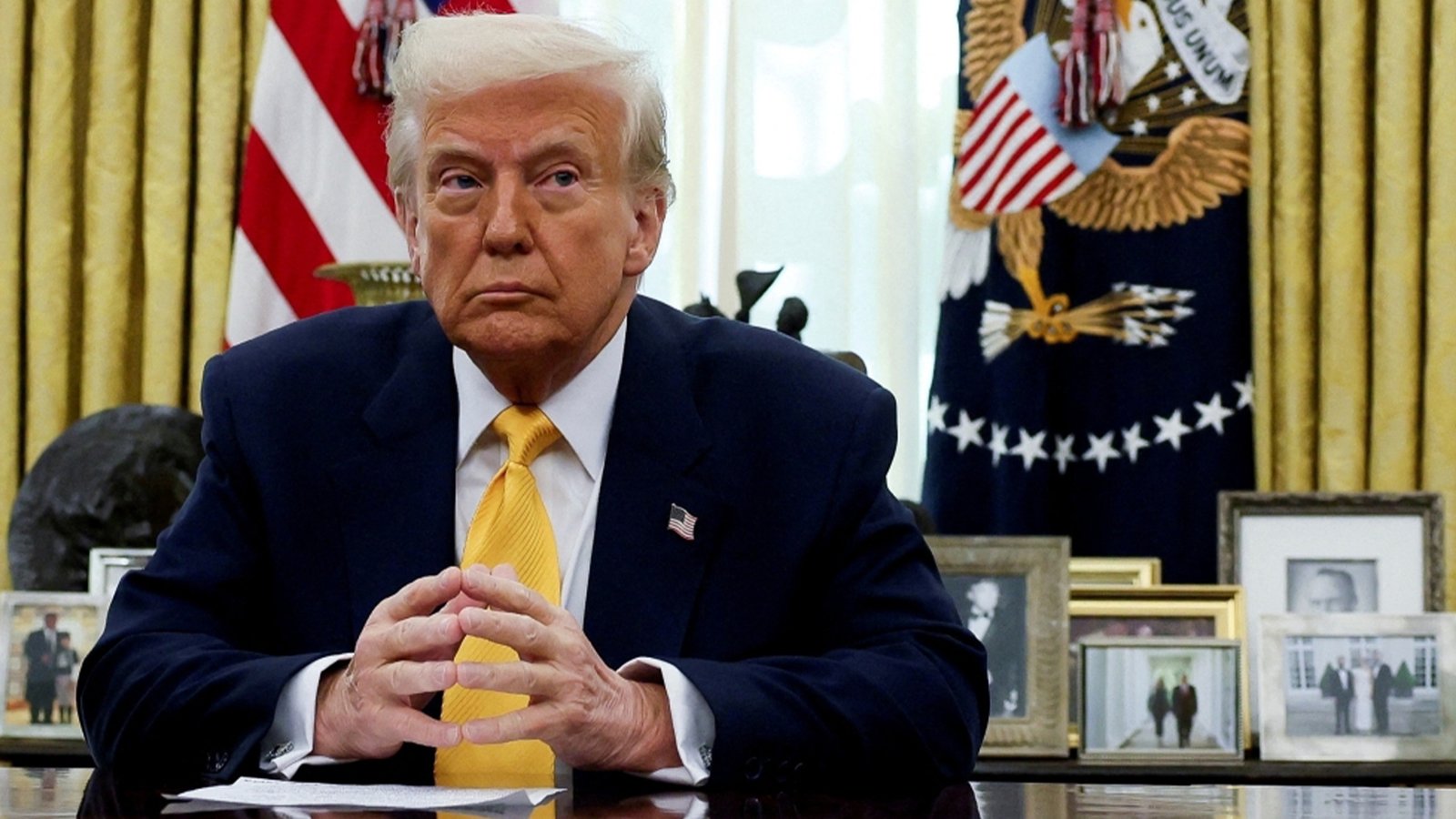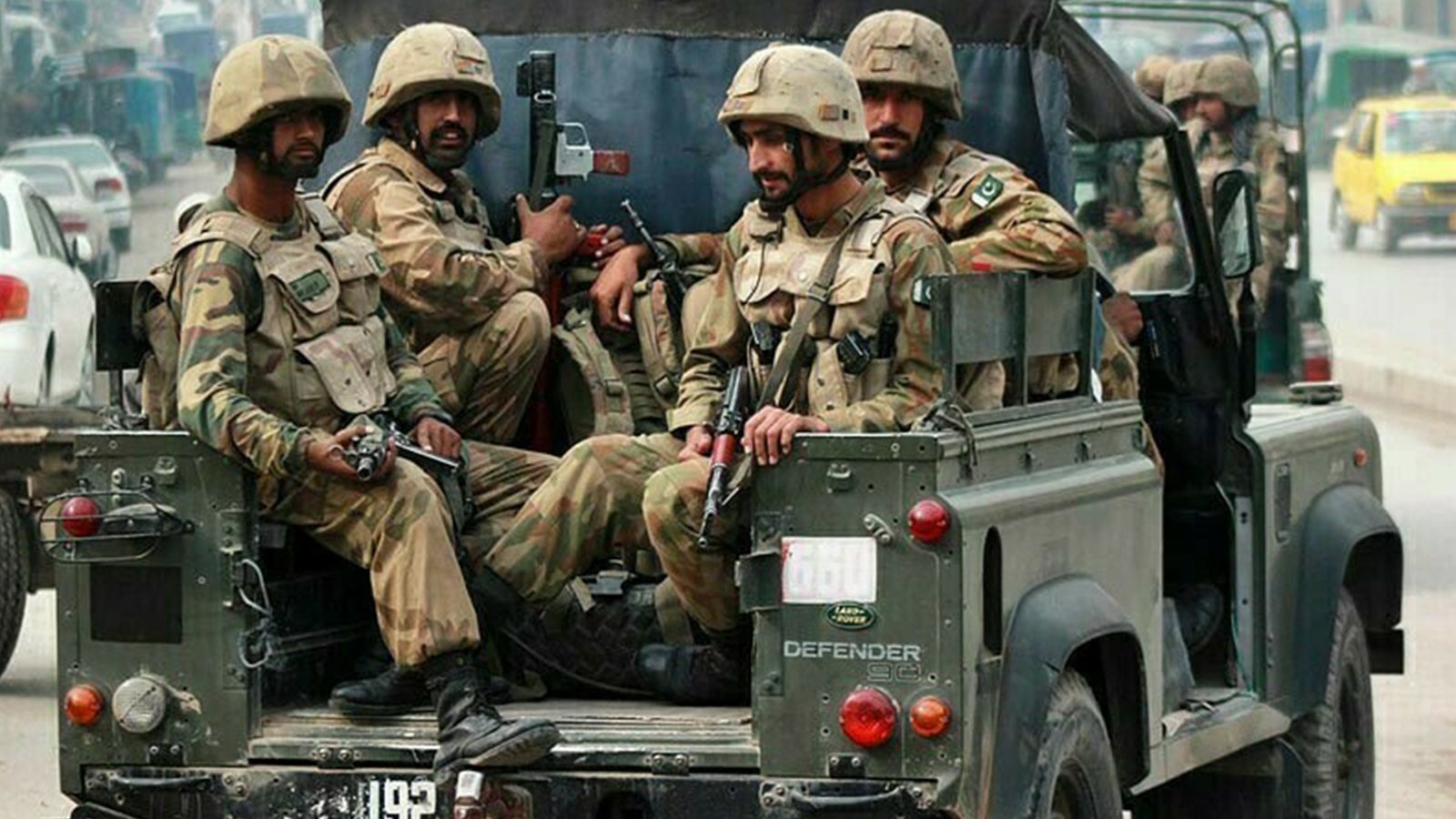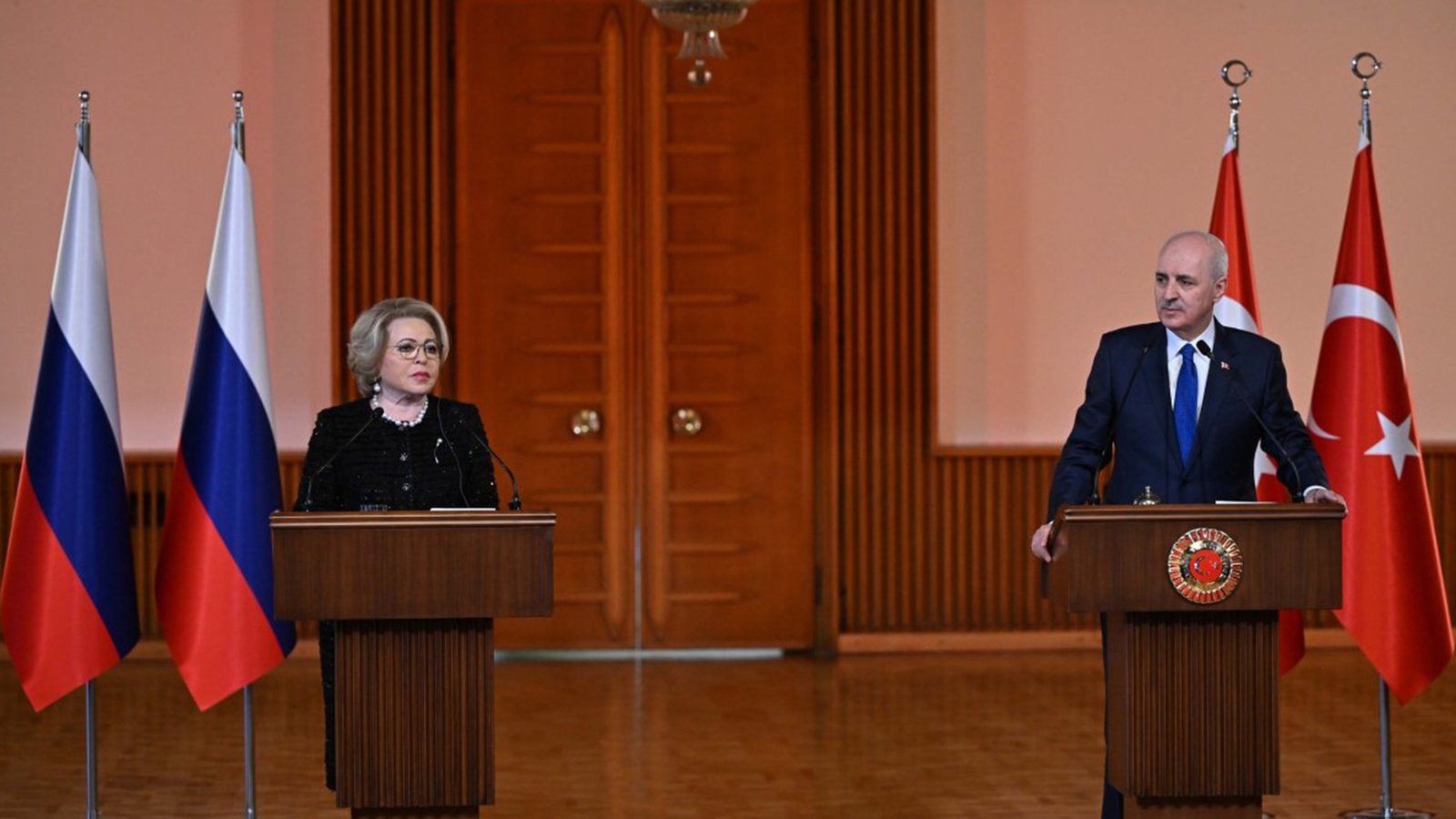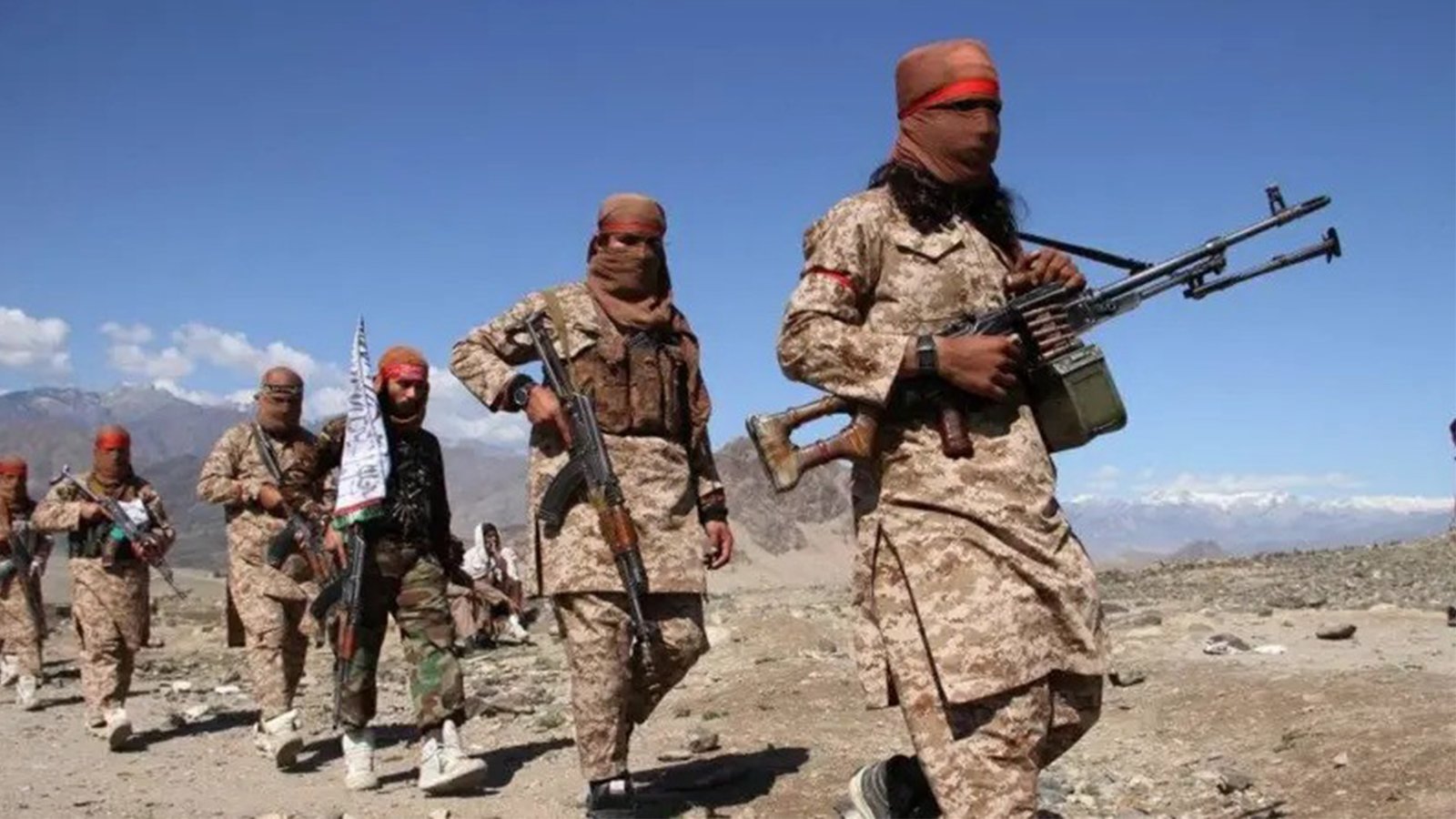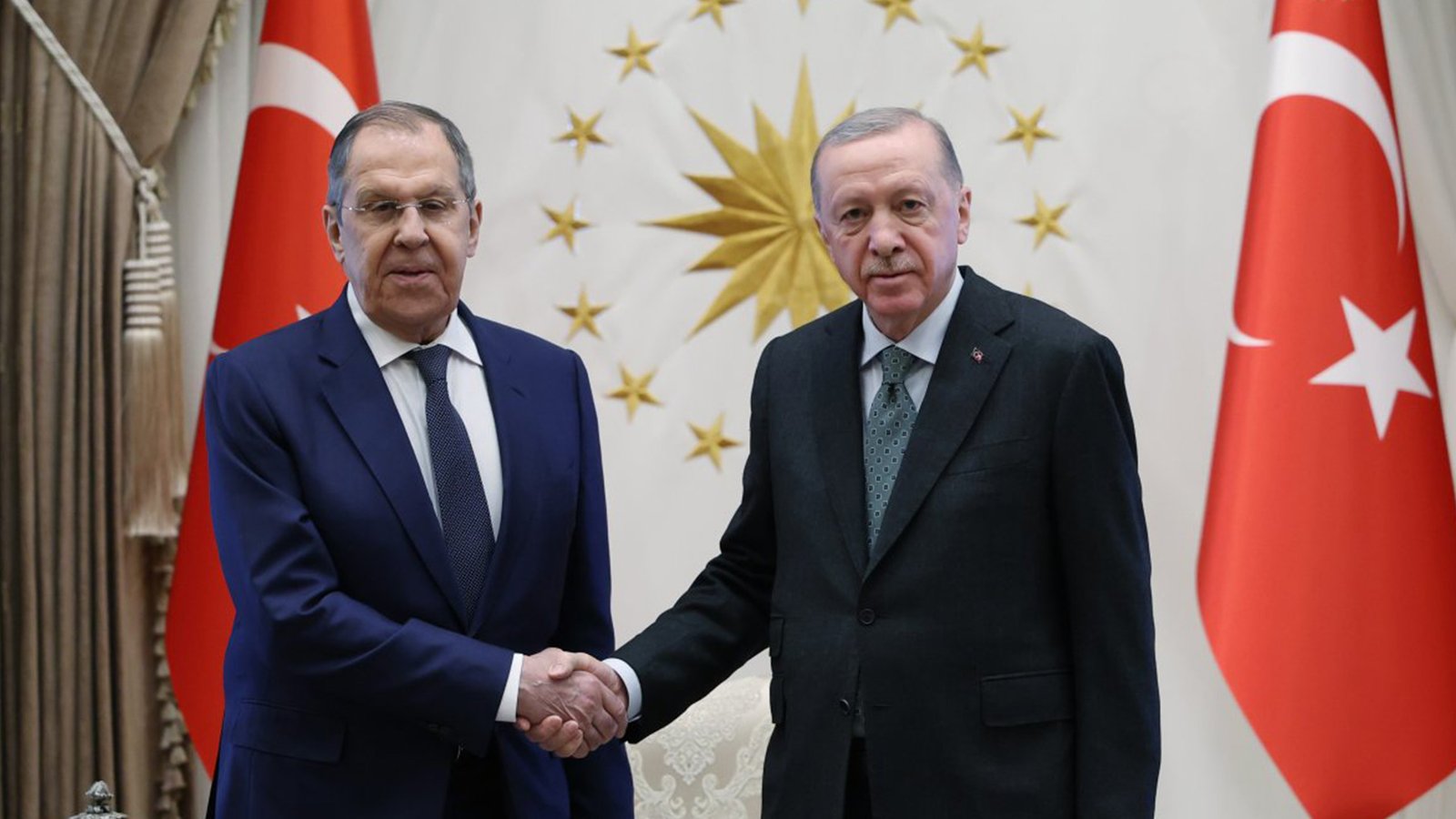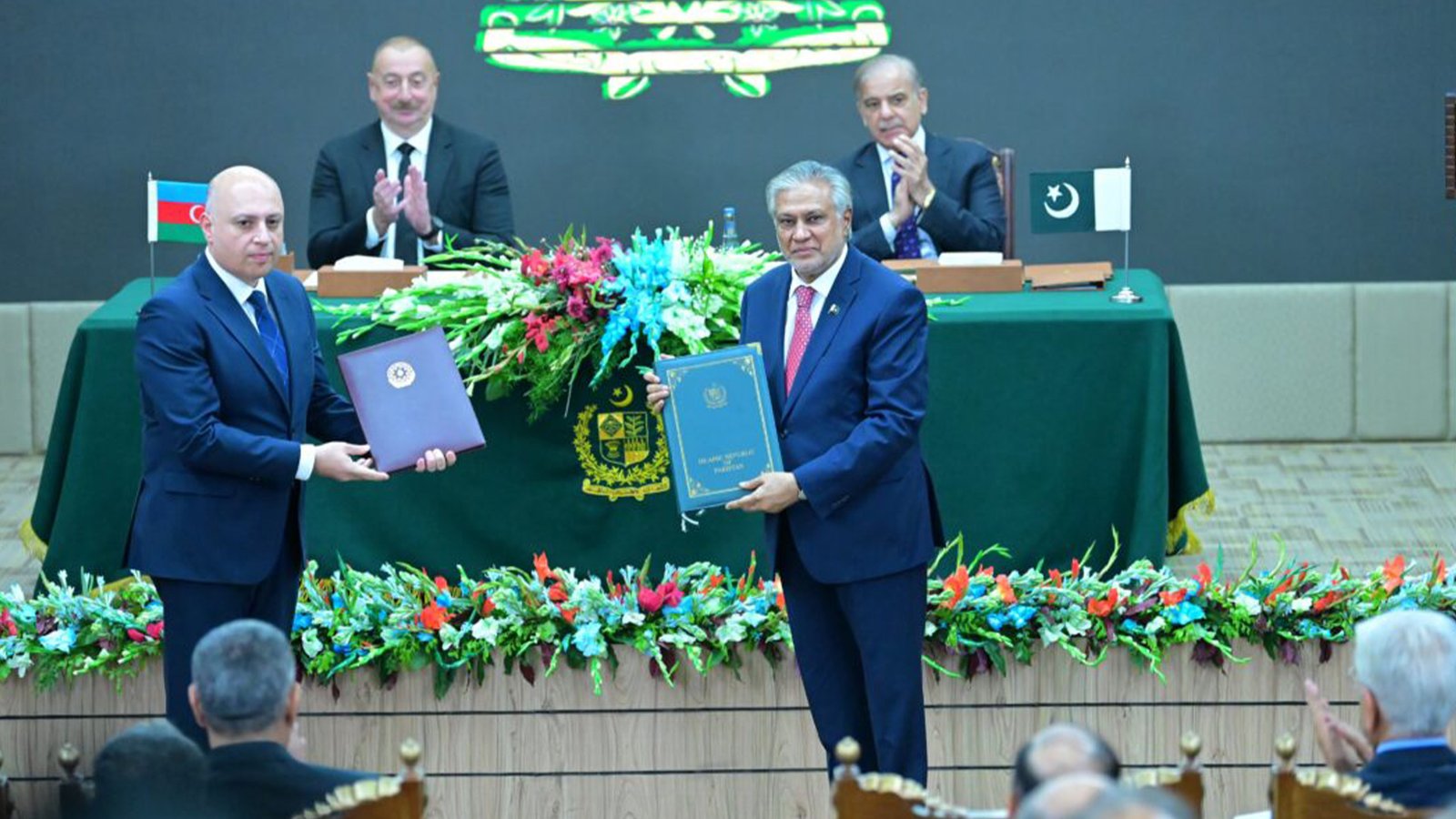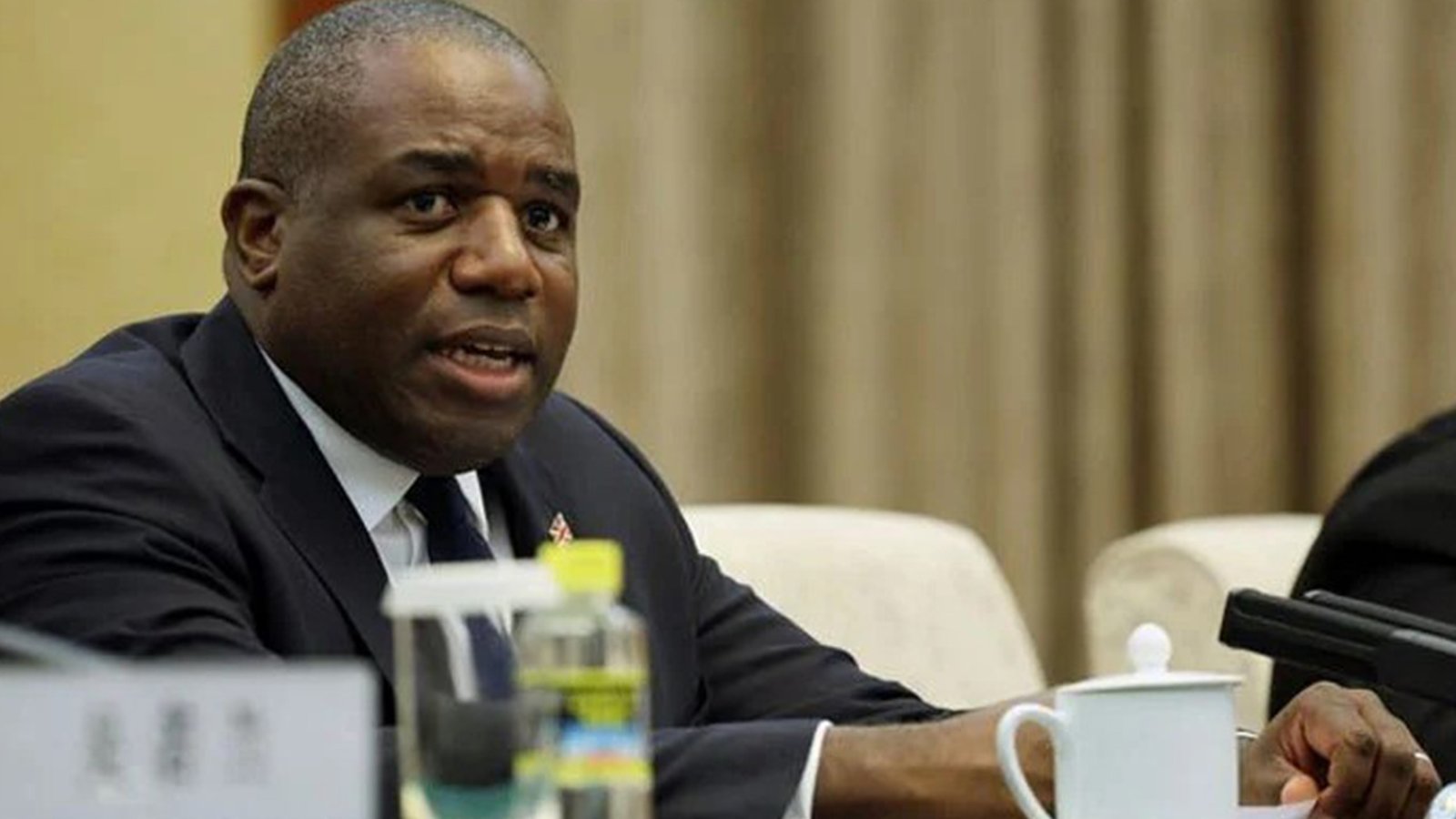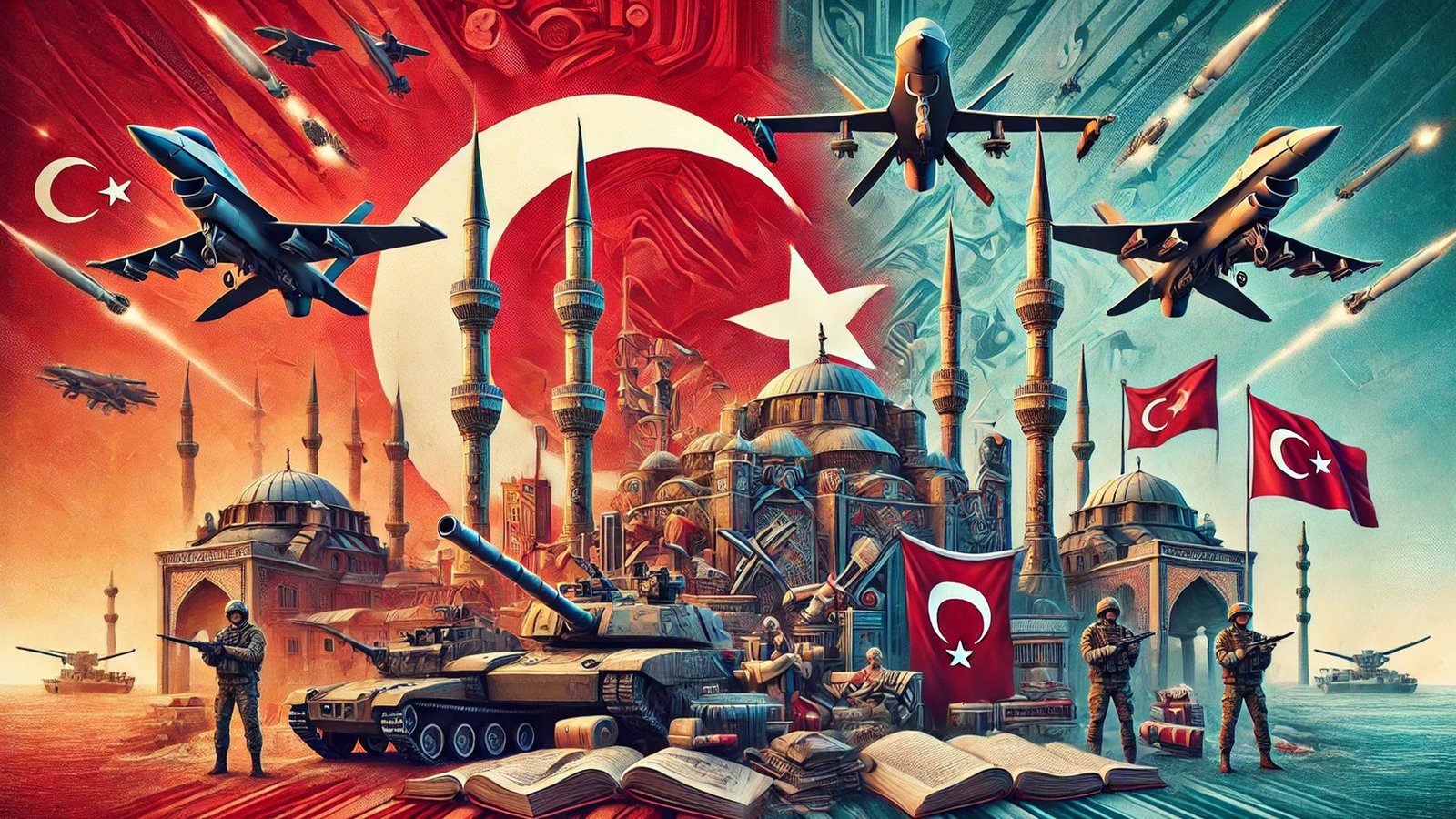In Depth Report: Turkiye’s Growing Soft & Military Power
In one of his most emblematic statements, Turkish President Recep Tayyip Erdoğan declared, “Turkiye is bigger than Turkiye .” This proclamation is not mere rhetoric; it encapsulates a bold vision for Turkiye ’s role as a regional and global power. From its rich Ottoman history to its modern geopolitical strategies, Turkiye is maneuvering through economic challenges, regional instability, and global realignments to assert itself as a formidable force on the international stage. “In Depth Report: Turkiye’s Growing Soft & Military Power”.
Historical Context and Shifts in Foreign Policy
Historically, Turkiye has straddled two worlds Europe and Asia acting as a bridge between civilizations. The collapse of the Ottoman Empire and the establishment of the Republic in 1923 under Mustafa Kemal Atatürk shifted Turkiye ‘s focus westward, emphasizing modernization, secularism, and alignment with the West. For decades, Turkiye remained a loyal NATO ally, particularly during the Cold War, when its proximity to the Soviet Union made it indispensable to Western strategy.
However, the post-Cold War era introduced new dynamics. The absence of an existential Soviet threat and increasing regional instability prompted Turkiye to recalibrate its foreign policy. Under the doctrine of “Zero Problems with Neighbors,” Turkiye sought to foster peaceful relations within its region. Yet, this approach faltered as conflicts in Syria, Iraq, and Libya dragged Turkiye into active military engagement. The Arab Spring in 2011 marked a turning point.
Turkiye gambled on supporting uprisings across the region, aiming to reshape the Middle East in its image. However, its soft power proved insufficient as the Syrian civil war escalated. Refugees, insurgencies, and Kurdish militancy created immediate threats to Turkiye ’s borders. These events forced Ankara to pivot from soft power to hard power as a survival strategy.
Since the failed coup attempt in 2016, Erdoğan has pursued a more assertive foreign policy, abandoning neutrality for interventionism. His vision reflects a blend of pragmatism, nationalism, and nostalgia for Ottoman influence, signaling Turkiye ‘s ambitions to lead in a multipolar world.
Turkiye ’s Growing Military Power
Turkiye ‘s military strategy is at the core of its rise as a regional power. With the second-largest army in NATO and a thriving domestic defense industry, Turkiye has emerged as a key player in conflicts across the Middle East, North Africa, and the Caucasus. Over the last decade, Turkiye has developed a robust defense sector, producing 75% of its defense needs domestically.
The country now manufactures submarines, frigates, missiles, and drones, reducing reliance on foreign arms. The Bayraktar TB2 drones, in particular, have been game-changers in conflicts like Nagorno-Karabakh, Ukraine, and Libya. These drones not only enhance Turkiye ’s battlefield capabilities but also serve as valuable exports, boosting defense revenue to $4 billion in 2023.
The Blue Homeland Doctrine asserts Turkish dominance over the Eastern Mediterranean, Black Sea, and Aegean Sea. By claiming extensive maritime zones, Turkiye aims to secure access to undersea energy resources and protect its trade routes. Plans to deploy drones and aircraft on the TCG Anadolu, Turkiye ’s first light aircraft carrier, reflect ambitions for naval supremacy.
Turkiye ’s military interventions in Syria, Iraq, and Libya have reshaped regional dynamics. By establishing buffer zones and deploying forces abroad, Ankara has curtailed threats from Kurdish groups and jihadist insurgents. Permanent bases in Qatar, Somalia, and Sudan extend Turkiye ’s reach into the Gulf and Africa, while partnerships with Azerbaijan strengthen its presence in the Caucasus.
Soft Power: Influence Beyond Borders
Turkiye complements its military strategy with soft power initiatives that leverage cultural, linguistic, and historical ties. Central Asia holds a special place in Turkiye ’s soft power strategy due to shared Turkic heritage. Countries like Kazakhstan, Kyrgyzstan, Uzbekistan, and Turkmenistan have deep linguistic and cultural connections with Turkiye . Through the Organisation of Turkic States, Ankara fosters cooperation on language, education, and culture. Initiatives like the Joint Alphabet Commission promote the adoption of the Latin script, aligning Central Asian languages closer to Turkish. Turkish soap operas, popular in the region, subtly reinforce cultural affinity, while educational programs and scholarships bring Central Asian students to Turkiye , creating a new generation of pro-Turkish leaders.
Hosting over 3.5 million refugees, primarily from Syria, Turkiye portrays itself as a global humanitarian leader. This stance not only bolsters its moral authority but also provides leverage over the European Union, which relies on Turkish cooperation to manage migration. Turkish-funded schools in Central Asia offer high-quality education, increasing Turkiye ‘s influence among young generations. Additionally, the Yunus Emre Institute promotes Turkish culture globally, particularly in Central Asia, Africa, and the Balkans.
Central Asia: A Renewed Focus
Turkiye ’s strategic pivot toward Central Asia is particularly noteworthy. As the historical heartland of Turkic peoples and a key node of the ancient Silk Road, the region represents a vital area for Turkish influence. Central Asia resonates with Ankara’s vision of a Pan-Turkic world, a cultural and political alliance stretching from Anatolia to the Altai Mountains. While this idea faces resistance, it remains a cornerstone of Turkiye ’s long-term strategy. Through the Organisation of Turkic States, Turkiye has established economic programs like the Turkish Investment Fund, which supports small and medium enterprises in Central Asia. Trade volumes with Uzbekistan, Kazakhstan, and Kyrgyzstan have seen steady growth, although they remain modest compared to Russia and China.
Turkiye has supplied drones to Central Asian countries like Kazakhstan and Kyrgyzstan, while plans to manufacture weapons in the region signify deeper military ties. These moves challenge Russia’s traditional dominance over Central Asian security. Central Asia is critical to China’s Belt and Road Initiative and serves as a transit corridor for Turkiye ’s Middle Corridor project. By enhancing connectivity between Asia and Europe, Turkiye positions itself as a pivotal player in global trade.
Economic Policy: Challenges and Opportunities
Economic stability is a critical factor in Turkiye ’s ability to sustain its geopolitical ambitions. While the Turkish economy faces significant challenges, it also has untapped potential. Discoveries of 540 billion cubic meters of natural gas in the Black Sea could transform Turkiye ’s energy landscape, reducing its dependence on imports and strengthening its economy. Pipelines like Baku-Tbilisi-Ceyhan and the proposed Trans-Caspian Pipeline position Turkiye as an energy transit hub, connecting Central Asia’s hydrocarbons to Europe.
The depreciation of the Turkish lira has made Turkiye a more attractive manufacturing hub, potentially rivaling China in some sectors. Increased trade with Central Asia underscores Turkiye ’s role as a regional economic partner. Despite economic turmoil, Turkiye remains a top global tourist destination. Its historical and cultural appeal continues to generate significant revenue.
Managing Relations with Major Powers
Turkiye balances its ambitions with complex relationships with global powers. Despite collaboration on energy projects like TurkStream, Turkiye and Russia compete for influence in Syria, Libya, and Central Asia. Their relationship is pragmatic but fraught with tension. Turkiye supports China’s Belt and Road Initiative, leveraging its location as a transit hub. However, this relationship is complicated by Turkiye ’s support for Uyghur Muslims in China. Turkiye ’s independent policies, including purchasing Russian S-400 missiles, have strained relations with NATO allies. Nonetheless, Turkiye ’s strategic location ensures its continued importance to the alliance.
Turkiye ’s Future Challenges and Opportunities
Turkiye ’s future hinges on its ability to balance military assertiveness, economic stability, and diplomatic engagement. Economic stability remains central to Turkiye ’s geopolitical ambitions, despite facing significant challenges. Under Erdoğan’s unconventional economic policies, which prioritized low interest rates to stimulate borrowing and investment, inflation surged to a record 85% in 2022, the highest in decades.
While this eroded consumer purchasing power and raised import costs, the devaluation of the Turkish lira paradoxically bolstered export-driven sectors. Turkish goods became highly competitive globally, propelling growth in industries such as textiles, automotive production, and electronics, and positioning Turkiye as a manufacturing hub rivaling China.
This shift attracted foreign investment even amidst economic instability. Furthermore, the discovery of 540 billion cubic meters of natural gas in the Black Sea promises to reduce import dependency, while pipelines like Baku-Tbilisi-Ceyhan strengthen Turkiye ’s role as a critical energy transit hub. Meanwhile, tourism continues to generate billions annually, making Turkiye a top global destination and providing economic resilience. To sustain these gains, addressing inflation effectively and rebuilding foreign reserves will be essential for long-term stability.
Expanding engagement in Central Asia by leveraging linguistic and cultural ties alongside military and economic tools is a key focus. Stabilizing inflation and boosting energy independence will be critical for sustaining Turkiye ’s ambitions. Resourceful diplomacy will be essential to avoid overstretch and maintain partnerships with global powers.
Also read this: Analyzing Turkey’s Soft and Military Power Expansion
The Final Frontier
Syria will remain a critical test of Turkiye ’s ambitions. Ankara’s military operations aim to secure borders, counter Kurdish militancy, and manage refugee flows. However, resistance from the United States, Russia, and Zionist regime complicates Turkiye ’s objectives. Erdoğan’s vision of a “bigger Turkey” is ambitious, blending military might, cultural diplomacy, and economic resilience. Whether this vision materializes will depend on Ankara’s ability to navigate the shifting sands of a multipolar world while managing the storms at home, Turkiye must anchor itself firmly in the fertile soil of Central Asia. Like a tree whose roots run deep into its ancestral ground, Central Asia offers both the strength of shared heritage and the nourishment of untapped economic potential, forming the cornerstone of Turkiye ‘s ascent on the global stage.


